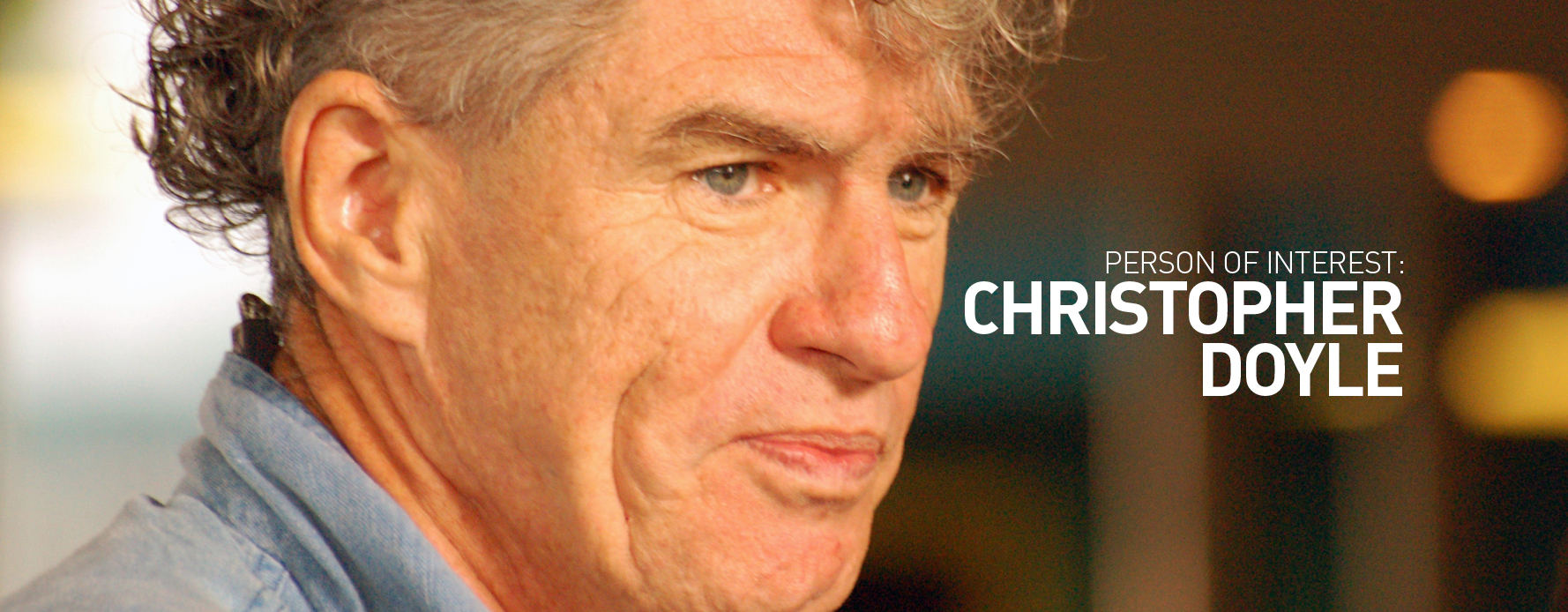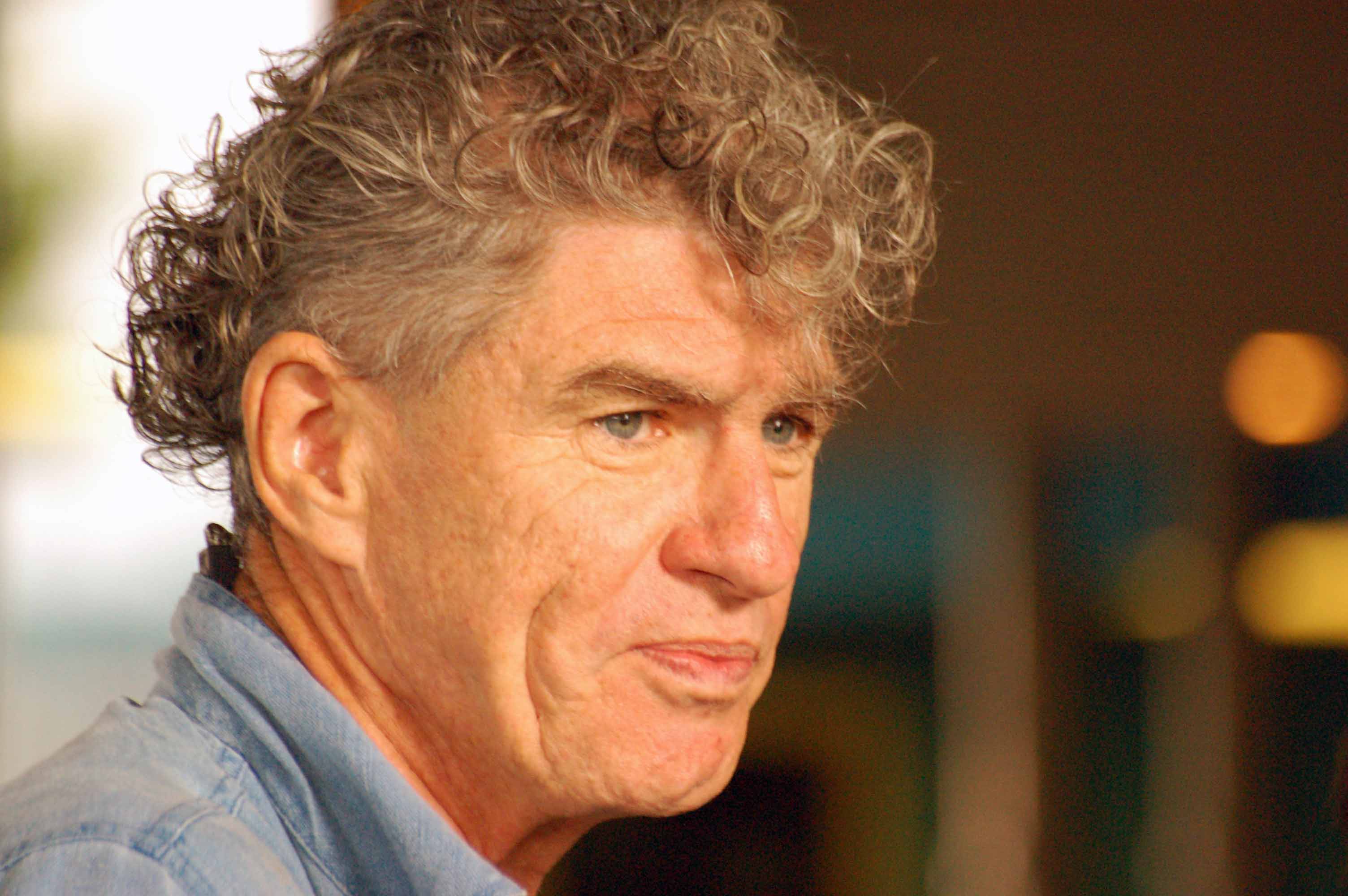Christopher Doyle: Don’t Listen to Old People…
 Thirsty for JUICE content? Quench your cravings on our Instagram, TikTok and WhatsApp
Thirsty for JUICE content? Quench your cravings on our Instagram, TikTok and WhatsApp

While the name may not ring a bell in Hollywood circles, Christopher Doyle, also known as Du Kefeng to his counterparts, is a famed cinematographer and director in Southeast Asia. Having made his name working with Wong Kar-wai, Zhang Yimou, and several other award-winning filmmakers, he’s also responsible for the masterful camera work on The Strokes’ ‘Juicebox’ from First Impressions on Earth. JUICE caught up with him recently at Tropfest SEA up in Penang, where he was one of the judges of the short film fest…
We’ve heard that you’re currently working on a film here in Penang?
It’s basically about dysfunctional families. It’s a Hokkien film, it’s pretty interesting – it’s very autobiographic. So yeah, it addresses this specific Chinese culture, and this specific city.
How did you get your foot into the Eastern movie industry?
Well, I was a traveller for a very long time, and I got tired of not speaking a second language. At that time in Australia where I grew up, all they taught in school was Latin, Greek, German, and French. There wasn’t anything unique. So I didn’t have any second language. I lived in India for three years, and I got tired and decided that I needed to learn a second language. Then I went to Hong Kong to study Chinese – it was hard to communicate in China at that time during the period just after the Cultural Revolution. And then, through meeting people around, I got involved in the industry. There were people who wanted to express themselves, and I helped how I could.
Speaking of which, how do you feel the industry has evolved since the days of the revolution – and do you feel it’s moving towards the right direction?
I don’t know much about the industry, I mean, I make films but I don’t connect so much with what’s happening. In fact, I rarely really watch movies (laughs). So I can’t speak for the industry as a whole, but for the parts I’m involved in. There’s no middleclass anymore; there’s only really rich people, [and] the rest of us. It’s either a USD300 million film, or a student film. There’s no in-between anymore. For example, there were a few movies I worked on and we had to film an entire feature film in four or five days. It’s just too expensive if you’re not doing it on your phone. And then, I think that’s the real challenge when people are figuring out how to get their films to other people, and how they’re going to survive it. As a filmmaker, I think the challenge is exciting, though. And because of that, I work with a lot of younger people because they have a different visual experience than I do. You live in a different world, with different concerns. I’m always the oldest person on set. I think it’s exciting, because we’re asking questions that you don’t know and I don’t know – so let’s figure it out together. Right now, I’m working on a film where I didn’t write it, I just interviewed people. Young people, and old people, and that became the basis of the movie. So it’s not my having something to say, but everyone in general telling their own story, then we work on how to put it together and how people can interact. To me, that’s the exciting. We have to do things a different way. We can’t rely on the industry – it’s run by accountants. And they don’t have the creative aspect.
Do you see yourself doing this…
… forever? Of course. But one day I’m going to fall down and that’s it. I mean, what else am I going to do? You see it everywhere with creative people. You either [commit] suicide, or you live long. Because I feel that the energy you put into things keeps you healthy. People know I like to drink, it doesn’t have anything to do with what I’m doing but it’s just the pleasure of the taste. From what I understand, you burn a lot of calories with your brain. So for as long as that keeps going… (trails off) you gotta keep pushing ahead with it.
Over the next few years, are there any personal projects you’re looking to work on?
The one I mentioned earlier. It’s a fiction film, yet it has a documentary base. I think going into these crossover areas, that are, as far as I know not explored so much, is exciting. But then like I said, working with young filmmakers is extremely energising. As I mentioned in my talk, there are no answers, but there are lots and lots of questions. Some of them are ridiculous questions, but you try to get them, and then you get old. That’s the problem with older people, aye? (Laughs) You think you know all the answers. They just got tired of asking the questions. It’s the same questions, the same problems just answered from different perspectives now.
What are you looking for in a short film when judging ‘em?
I don’t know. I mean, I’m a bit scared. What right do I have to judge someone’s work? I don’t mind if you judge my work because I don’t care. It is what it is, and if you like it or don’t like it, I don’t mind. I think I’ll just sit back and be positive and optimistic about everybody’s work (laughs). There’s no good or bad. Just to have people see it is already the best thing. I think of course, if you look for some kind of engagement – something that moves you visually, emotionally. Even if it’s short, why would I spend 10 minutes with you if we didn’t have something to share? I just did a film, a love story. I just saw the cut and it was two-and-half hours long. And that made me really angry because that was indulgent. To drag it on is arrogant. I think if you have something to say, say it well, and communicate it as directly as you can. That’s the responsibility of the filmmaker.
Do you have any tips for aspiring filmmakers, especially in this region?
Yeah. Just do it. Work with friends, trust and learn from each other. Ask the stupid questions, and don’t listen to older people (laughs). And of course, a conventional education isn’t going to tell you [the answer]. Life is. Look around you. Look at your extended family. Look at Penang. Celebrate that, celebrate those differences. And if you share it with us you become more confident about yourself. You realise that it’s very universal. I have a sitar CD with me now. It’s a very specific instrument bonded to a very specific culture. But it touches me when I listen to it. That’s what world music is about. I don’t necessarily understand it, but it carries some sort of weight.
Last question. What’s your favourite juice?
I’ve got three or four pornographic things, but I’d better not say it. I think juices are chi to me. As in tai chi, inner energy. And to me, that energy is the light reflected off a woman’s skin. It’s the greatest pleasure. It happens to me everyday – with a colleague, or a friend. It’s incredible. It’s an engagement. Yin-yang. The cycle of energy. If I can convey and share with you the energy the person in front of the camera is sharing with me, we have achieved something. That’s what you should do. Find your gift, your energy. If you like lying around in bed, find somewhere to lie around. If you like surfing, do that. Do what you do best. Then you’ll find your JUICE.
www.twitter.com/dukefeng52
www.hktrilogy.com

 Get Audio+
Get Audio+ Hot FM
Hot FM Kool 101
Kool 101 Eight FM
Eight FM Fly FM
Fly FM Molek FM
Molek FM